 Preppers have a bad reputation for hoarding gear, stocking up on a year’s-worth (or more) of food, and packing bug out bags that could supply a platoon. In almost all cases, these preppers would be screwed if there were a disaster or SHTF.
Preppers have a bad reputation for hoarding gear, stocking up on a year’s-worth (or more) of food, and packing bug out bags that could supply a platoon. In almost all cases, these preppers would be screwed if there were a disaster or SHTF.
Gear and supplies are useless unless you still have it when you need it, and as I’ve experienced several times in the military – in emergency situations, things don’t usually go as planned.
There is an inherent cost associated with collecting stuff that extends past the initial purchase. Buying means researching, storing, protecting, repairing, maintaining, carrying, and several other ‘ings.
The precept of knowledge weighing nothing has been a long-term idea in my thinking. I love learning how to do things and how to adapt my surroundings by adapting what I have available for new purposes.
Also, if something like a regional disaster hits your area, you may be surviving with only what you have on you at that moment and all that stuff you collected will be useless.
Now don’t get me wrong, I’m not saying you shouldn’t go out and buy stuff in advance of something happening. Starting a fire with something like a magnesium/ferro fire starter is much easier than by rubbing two sticks together, so those things are really good investments. But if you lost that thing, would you still be able to start a fire?
What I am saying though is that sometimes it’s better to learn than to buy. Let’s look at some examples.
Alcohol
In every part of the world and culture, alcohol plays a major part. Sometimes it’s hidden but even while deployed in Iraq and Afghanistan, it was very easy to find it if you wanted it (but you’d pay out the ying-yang for it). During hard times, alcohol gets even more popular.
People throughout the ages have risked their lives to either drink it or sell it. It’s used to run vehicles, sterilize wounds and supplies, give you a buzz or just used as a form of underground currency. With it you can trade directly for other things or use it’s barrier-dropping abilities to help you get other things in trade. Alcohol will always have value.
What you may think then is that you should stock up on gallons of alcohol so you’ll have it if SHTF. No doubt it may be a good investment (plus you can just drink it if you want to while you wait for the world to end).
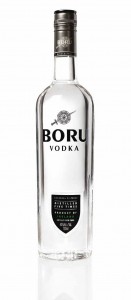 So you go out and buy two cases of Boru vodka (My favorite vodka of all time and hella cheap at Total Wine) and store it. Then the economy collapses one day and you have to bug out. Can you really carry 2 cases of vodka with all the other stuff you’re taking? Maybe you can but it comes at the opportunity cost of what else you could have carried.
So you go out and buy two cases of Boru vodka (My favorite vodka of all time and hella cheap at Total Wine) and store it. Then the economy collapses one day and you have to bug out. Can you really carry 2 cases of vodka with all the other stuff you’re taking? Maybe you can but it comes at the opportunity cost of what else you could have carried.
Let’s say you decide you’re bugging out with three vehicles so you have plenty of room and you have your 2 cases with you. Now you can drink it or trade it, but once it’s gone baby, it’s gone.
Instead, what if you learned how to make vodka?
Now you could just bring the equipment you’d need and then collect the items necessary. No matter what you start with or where you’re at, you know you could start collecting the things necessary to distill your own hooch for years.
What’s that? You say that sounds way too complicated for you to figure out? No shit. That’s because you haven’t learned how to do it.
But, if you’d invest some time into learning how to make alcohol instead of just buying it, it won’t seem all that difficult anymore. And you’ll have a great new hobby that you can share with your friends or help you make new friends.
The biggest thing here is that if you ended up leaving your home without your alcohol, or it gets taken or broken, so what? You don’t have to pack anything. It’s in your head. You just figure out how to procure or make whatever you need and then voila!. Also, the more you invest into learning how to do it, the easier it’ll be for you to either make what you need or adapt what you have available. And they can’t take that from you.
Vodka is just one example. Even with that, you could expand to learning how to make beer or even whiskey and be a lot more adaptable (this book is what you should probably start with).
Medicine
What about medicine? It’s all well and good that you have an Elite Large Fully Stocked GI Issue Medic First Aid Kit Bag but do you know how to use anything in it more than the bandaids? Do you know how to recognize the symptoms of internal injury? Would you know when to use the veterinary antibiotics that you stocked up on this last year? By medicine, I don’t just mean pills and stuff but how to fix people.
Obviously medicine is a HUGE thing to look into but one of the things I’d suggest you start looking into (after some basic First Aid) is how to make your own medicine. Just like alcohol, if you can make medicine, you won’t have to carry or stock it, and you can use that knowledge to either barter for goods you don’t have or use yourself.
And don’t think that just buying a book on survival medicine is sufficient. You should go out and train on how to do the things in that book or you’ll be staring at the pictures wondering if you’re doing it right.
Books are definitely things that I do spend quite a bit on – but I actually read them and then do some research on how to use that knowledge. I use the books as reference and to get me started.
Hunting and gathering
Sure it helps if you pack a gun with ammo and your fishing pole with string and hooks with all the smelly stuff etc but do you know how to use all that stuff? Tracking animals takes some skill. Trapping them can take even more.
And if you got yourself a deer in the woods, do you know how to field dress it, skin it, butcher it and store the meat, and all that jazz? There are things to learn about what to do once you actually manage to grab or kill something you’re gonna eat. There are also a lot of uses for animals outside of just eating them. Would you know how to tan animal hides if you had to?
Homesteading
Let’s say you got yourself a dandy cabin in the woods and have a month’s worth of food stocked up there. What’re you gonna do the next month? Tracking, trapping and fishing take time and energy. One thing that can provide even more food per ounce of effort is gardening/farming/homesteading. You may not be able to carry or store 1,000 pounds of potatoes but you can sure grow them.
People who lived throughout the U.S. a hundred years ago and longer knew how to do this stuff because they grew up doing this stuff. A lot of us have lost this knowledge but it’s still available to be learned. Homesteading is the essence of self-sufficiency. In fact, there are so many useful things you can learn if you get into homesteading knowledge that it could easily deserve its own post on the benefits. Divining the knowledge within will bestow upon you the ability to do such things as: make soap, raise and butcher farm animals, grow crops, store food, make food such as butter and cheese out of basic components, make clothing, get energy off the land, and a LOT more.
Self defense
If you find yourself in a disaster or SHTF scenario, it won’t be enough just to know how to get stuff, fix stuff or store stuff. There are always gonna be people out there who’ve learned the TOPS method of survival – Taking Other People’s Shit.
Even having a gun is pretty useless if you don’t know how to use it. Take some time to learn how to defend yourself. Learn how to fight, how to shoot, how to take care of your weapons, how to make ammo, all that stuff. Figure out what you’d need to know that you can learn now. You may not be able to learn it in time then.
Also take some time learning how to defend your home and family. There are things you can do to set up your homestead and family to be protected, even if you’re not there to protect them. There are also things that you can learn that’ll make you be able to fight like a larger group (called a combat multiplier). The Army doesn’t just teach us to shoot, they teach us what to shoot, how to move, and how to communicate. You should learn that stuff too. You can’t always rely on calling 911.
Mechanical stuff
It’s awesome that you brought a $100,000 tricked-out, lifted, blown and badass F350 turbo diesel all EMP-proofed and stuff but if you went out one morning and it wouldn’t start, would you know how to get it running or does it instantly become a really expensive radio and extra storage for stuff you don’t wanna keep in the cabin?
You may have a garage full of all sorts of tools but do you actually know how to use them? There are a lot of basic things you can learn about how to troubleshoot and fix a car to get it running even if you don’t have replacement parts.
In my lifetime so far, I’ve used kite string and vice grips to get home at least 5 times in two different cars and a Harley. You may not have the luxury of having a mechanic around, or even parts. Plus, learning the basics of how to fix a car can help you if other mechanical things break like your swamp cooler or portable power system. Learn this now or be prepared to junk your stuff later.
The big thing about mechanical ability that you also need to keep in mind is that you need to learn how to fabricate things and use things in ways they weren’t designed for. If you were in the woods, would you be able to have hot water for showers? Could you make an evaporative cooler running off solar or water power? The more you learn about how things work, the easier it’ll be to make it work yourself, or even make one from scrap. Here’s a quick example of how you could make a hand-pump for a water well. With some experience, you could adapt something like this to work without you having to pump it.
Basic survival

There are many ways to start a fire with wood and friction, and you may know ten methods off the top of your head but have you ever tried to do it? It’s not nearly as easy as it sounds. It’s a little like learning how to play pool. You can read all the books on the subject you want, and sit in lecture halls taught by the leading experts but that’s all crap until you get yourself to a table and hit some balls. If you’re gonna get a book on survival – just get this one – and then take it out camping with you.
You may not think so, but learning how to tie knots can be an important survival skill too. When I was going through the Warrant Officer Candidate School we had a leadership obstacle course that made us have to figure out how to do all kinds of stuff with random crap that was laying at the station. I’m decent with several knots but this was a bit more than I was used to. Luckily, one of the guys on my team was an 18C dude with a LOT of knot-tying experience. It made a few things work that wouldn’t have normally.
In basic survival, you also need to learn things like how to build a shelter, how to find and filter water, how to signal for help and how to protect yourself from the elements. There are many ways to do these things but if you know enough of them, you can just look at what you have available to you and adapt it to your needs without having to only be able to do it like they taught you on TV.
Don’t get me wrong, there are a lot of things you can learn from those shows, and they’re a lot more fun than sitting in front of the computer, but some of it you see is bullshit. Try it out for yourself, because it’s also a lot harder to do in real life than what you see on an edited show.
Electronics and communication
I spent decades in electronics. It’s one of those things that’s easily transferred to other things. Getting started in it was difficult. Lucky for me, My first MOS in the Army was in electronics in the 80’s and back then they taught you all the basic theory and then how to troubleshoot things down to the component level. I moved on from there to computer systems and even now use it with my ham radio (which is the best thing for emergency communications). And, don’t be an idiot and say there won’t be any electricity so there’s no reason to learn it now because you don’t know what’s going to happen until it does.
You can make a lot of things out of other things, and electricity is no exception. Here’s a quick video to show you a simple way to make a battery from a lemon, a nail and copper.
See what I did there? Now, not only do you know how to make a battery out of a lemon, you also know a little more about how it works. Once you learn the basics, you can grow from there. You could, for example, change the lemon to a potato (the ones you learned how to grow, remember?) and with a little more knowledge, stack them in series to add up the voltage and in parallel to add up the current. With enough of them, you could do things like charge your electronics. You could also take that basic knowledge and learn how to make batteries that are in a box instead of a spud.
Just like electronics in general, ham radio is a very broad and complicated topic. It may seem like all you have to do is buy a Yaesu 857d like I have, hook it up to an antenna with a coax cable, and power it. That just sets you up. You have to be able to reach someone on the other end and have them reach you.
That can be very difficult at times. Learn it now and you can use it later. Learning it by yourself later is very hard. If you want to start, first get your license and then pick up something cheap like this handheld that you can learn on and keep in your bugout bag. It’s SUPER cheap but works. The best upgrade for any handheld btw is a new antenna. Just keep in mind that this one has a different post at the top than others so you’ll need an adapter.
Where to learn
Since you’re reading this website, you obviously have access to the internet. The internet has MUCH more information about how to do things than any other source. There are countless youtube videos that you can see how things are done and other websites that cater to specifically what you want to know.
I’ve set up THIS PAGE that I update occasionally with the best prepper websites for your convenience.
There are a lot of other things that you could learn. It all depends on what you know now and what you’ll face later. The real thing you have to do is focus on what’s gonna help you directly and also learn how to be adaptable. I’ll take a back street Harley mechanic shop owner over an ASE-certified BMW mechanic to be my SHTF fix-it dude if the world goes to pot anyday.
Also, prepping should involve your life as it is currently as well as in the future. And that future shouldn’t be limited to just a TEOTWAWKI (The End Of The World As We Know It) kind of life. That life is probably not gonna happen so while you’re planning in case it does, learn skills that will help you in the meantime. If the world ends the day after you die, all your preps will be wasted otherwise. Also remember that you should be prepping your current and possible future lives for a better quality of life, not just for basic survival.
Theory is as important as application and practice but always remember: In theory, theory and practice are the same. In practice, they are not. Learn the theory, apply the knowledge and adapt it until it works.




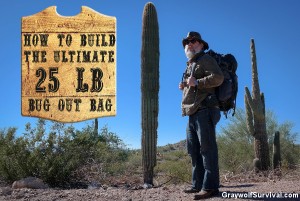
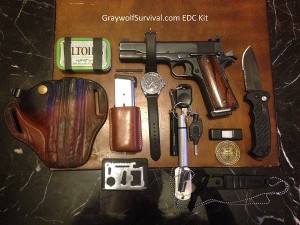
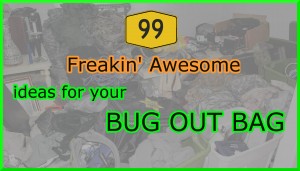
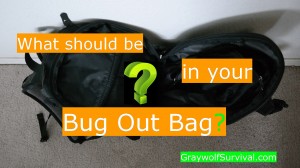

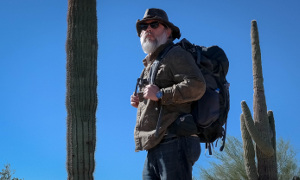
Nice article and thanks for getting me started on the Ham Radio, should be here on the 5th.
Greywolf ,I live in the UK and I retire in a few months,having worked my way around the world a couple of times,I thought that I knew how to look after myself, (having imbibed a pint or two of,” genius”, in the past, up to 29 countries now), still learning loads from your info. keep up that good work my man, inspirational!
I love the U.K.! Spent some time at RAF Mildenhall in the 80’s and was the U.S./U.K. LNO for the command in Africa. Watching Dr Who always makes me miss being there. Hopefully I can make it back again sometime. U.K., not Africa.
Thanks for the mention. Lots of good information in this article. You obviously cater to people who aren’t afraid to do some research and reading.
The boys were experimenting the potato battery setup last winter. This time of year we’re working on growing the potatoes.
Yeah, my readers are definitely not your typical readers. Most people can’t sit for more than a few hundred words of some fluff article that doesn’t really teach them anything useful in the end. My people would like to actually understand it enough that they can use that knowledge in whatever situation they find themselves in.
They don’t always read the longer articles in one sitting though, lol.
That’s what pinterest and bookmarks are for.
Great site, great advice. A few choice pieces of equipment will be handy of course but knowledge is key in the long run. Bookmarked!
Thanks for the great artical! Money has been in short supply most of my life and it has been “the how to do it yourself” knowledge that has gotten my family by. All of the “stuff” people stash away will eventually be gone and it is the knowledge/skills that everyone needs more of.
Keep the great articals coming.
This is a medical kit I evolved over a long time. It doesn’t weigh much. I keep it restocked as consumed around the house. I bought a friend of mine who is a surgeon dinner in exchange for him tutoring me in how to use the items, especially the trickier stuff like the suture kit and tourniquet. Rather than the sack you use I added the small Tupperware container as it is great for washing a wound and for laying out the contents in use without dropping everything on the ground. Let me know what you think?
• 3″x3″ gauze
• 4″x4″ gauze
• Advil
• Advanced pain medications
• alcohol wipes
• antibacterial soap
• band aids(3/4″x3″, 1″x3″, 2″x4″, larger)
• Benadryl
• Claritin
• clotrimazole
• cortisone cream
• eye cup
• first aid guide(red cross is good)
• gauze roll 3″
• gauze roll 4″
• hand sanitizer
• hemostats
• instant cold
• latex-free exam gloves(2 pair)
• moleskin
• Neosporin
• Quick Clot gauze
• saline
• small scissors
• snake bite kit
• stretch bandage(ace)
• sunscreen
• surgical grade suture kit
• surgical tubing
• thermometer
• tourniquet
• Tupperware container
I’m with you but to a point. Definitely need skills but STUFF is just as important. Nothing wrong with lots of gadgets, gear, food, supplies etc (assuming skills are just as high on the priority list). It’s like this, while I know how to MAKE a fire I carry matches, flint, lighters and other stuff so I don’t HAVE to do the primitive fire stuff. Should I forage for food and pick wild edibles? Maybe…but if I have 1-2 years of food stored up why? It’s easy to comment to the contrary while one has a full stomach and is sitting in the comfort of climate controlled air. 🙂
I do believe I made that point at least a couple of times in the article.
My point was that people usually spend 95% of their time and money on buying stuff and way not enough time and money on learning stuff.
Vince,
I see many of the basics for a good first aid kit there but it really would depend on what you are planning on doing with it. Your kit is pretty good for cuts and scrapes but lacks some of the items needed to treat traumatic injuries (trauma dressings), orthopedic injuries (splints), and other people (gloves). Also, there are items like butterfly bandages or steri-strips that can work just as well as sutures while being quicker, lighter, and taking up less space. Just food for thought.
-Tom
As always, good stuff, man!
Thanks Todd
Thank you for all your help so far! Now I have yet another question; lightweight hiking boots that last, am thinking of the VietNam era GI boots with the canvas sides, but looking for a modern replacement. We live in Ohio where a lack of rain is not something we suffer from here! Should be tough enough to hike home (I drive a truck) and work a small farm (looking at buying 5-10 acres, and inviting a select group of family and friends).
Thanks!!
Knowing science and math and stuff can also be valuable. What if a group of people in your area want to get together and combine their knowledge to solve problems? You want to be able to bring something to the table, something that you can easily share if you need to — without losing it yourself — or can teach to others. Teaching others how to do things might make the difference between you eating and not eating, as knowledge can be a valuable commodity.
How about something as boring and frustrating as math? Anything from basic adding, subtracting, multiplying, dividing, that sort of thing — or more extensive stuff like squares, cubes and their roots, and doing trig stuff with angles, and geometry stuff like dividing up land and making sure it’s recorded properly?
That’s ok, you’ll just whip out your calculator, and…zounds! The battery is dead! And the only guy with a spare battery that size wants a gold coin for it! In some circumstances, you might want to give him that coin, but most of the time that’s a real expensive battery, and you might need that coin for food or medicine or to pay for repairs on a machine you can’t do without. So you need to know how to do that math yourself.
Teach yourself math. Teach yourself how to teach math (and I don’t mean Common Core!) to others. And learn to do math with low-tech tools! Do you have a set of logarithm tables? Trig tables? Do you know what they’re used for and how to do it?
Kids’ math books used to have log and trig tables in the back. Now, they rely on calculators to do that stuff — but the idea here is to know how to do it yourself, not rely on a gadget that might break and leave you in the lurch.
How about a slide rule? Do you even know what it is? Can you use one? Can you teach others how to use one? Can you MAKE one if you have to? Can you calculate the scales yourself if you don’t have access to a book already containing them? We went to the moon largely on the calculating power of slide rules — our astronauts CARRIED them to the moon with them, even when every gram counted, they made room for the astronauts’ slide rules! They never run out of batteries, they work forever, and if you know how, you can do any sort of calculation you can imagine.
Calculators have rendered slide rules obsolete, but that could change overnight. Nobody makes slide rules anymore, but there’s lots available used. eBay has tons of them for a wide range of prices, depending on the age, condition, and complexity of a given rule. You can get one that’ll do just about any calculating job for around $20, but if all you think you need is basic arithmetic, you can get a basic slide rule for under $10. (Rare or complex slide rules can go for hundreds of dollars!)
You can learn the basics of a slide rule in an hour, and with a little practice you can do most basic arithmetic that would be tedious done by hand. It’s a skill worth having, and learning how a slide rule works is fascinating, even if you aren’t all that great at math.
I am very interested in learning all I can from you. My husband was a Vietnam Vet who strongly believed in survival preparedness. I lost him a few years ago from Agent Orange (something we never prepared for!). We have a daughter whose spouse is stationed at Ft. Riley, KS with my 2 grandchildren. They tell me the “military” will handle whatever happens & neither believe what I say. Now I’m afraid I can’t handle any disaster by myself and I don’t want to feel this way any longer! PLEASE put me on your email list.
I added the email address you have listed in your comment. Did the email form at the top of the page not work?
I’m so glad you wrote this article. Found this site yesterday, and have now read about a dozen of your threads. One thing that keeps popping up is people asking if certain gear works, or if you’d help make them a kit, and every time I’ve thought, it wont work if you don’t go out and try it and then adapt it to how you need it to work. I’ve read articles and watched videos about how to make fire from sticks. I’ll be damned if I can make it work. I know this from trying. And I’ll keep trying until i get it, but i cant rely on that technique to save my life right now.
On a bit of a tangent, Im a smoker and use a normal sized bic lighter probably 20 times a day on average, and they last me 3 months. if it gets wet, I’ll pop off the child safety bar and run the wheel down my leg fast and hard until it sparks. lighters ready again. Whole process takes about 30-45 seconds. the child safety thinger can be filed down for a makeshift fish hook.
thanks for the good work and keep it coming
I started preppping when I was 14 years old. Now I am 63 and still consider myself a novice! There is just too much to learn (memorize). The same can be said for Skills. Now I have a large liberary that does my remembering for me. There is no end to the stuff you can learn and skills you can aquire, and I fear that it will still not be enough for when the SHTF. Pray for wisdom, and practice ,practice, practice.
I am 14. Do you have any advice for a kid starting out in prepping?
Go camping/fishing/etc with someone who knows what they’re doing and start learning about ham radio.
Loved this, for the new year I’m focusing on learning to protect myself, and better myself eith a lot of these skills. Knowledge os definitely power!
I keep finding these little sites every where graywoff your 25 pound bag is really 25 million pounds of information. thanks to all the bloggers.
I love this site, thank you for the information. While I’ve been teaching myself herbs and medical information for years, I always want more! Rosemary Gladstar’s book looks superb, it’s on its way!
From a current CI to a former; I love your site Chief! I just found it today and have been wrapped up in it for hours. My wife and I go out now and then and practice similar things I’ve read up on here but you’re giving people a ton of great information. Just wanted to say “Awesome job.” Thank you for all you’re done and all you’re doing now.
Thanks Greg and thanks for your service! I just left CI a couple mos ago. Optempo just got a bit too much.
Hi greywolf.great site.I’m in UK .I’ve been stocking up on all sorts of stuff,military kit survival gear and all the weapons that we can legally have in UK.do you think that it maybe sometime soon that all my stuff maybe going to get put to use.I’ve been trying to keep up with world events and to my untrained eye it’s all looking a bit precarious at the moment.what do you think with your more trained eye.I’d love to hear what you think about our world now and if I’m going to be living the nightmare.I have all ready had some survival experience.I had to live in the woods for 18 months due to losing my house a few years ago.happily found new accommodation after that.it was hard cold and wet but in a strange way I look back on those days with a certain amount of fondness.this was one of the reasons that I decided to start prepping to the extent I do today.it’s nice to know that there are other’s out there that can help with ideas as you can’t think of everything yourself…thanks again mate….Der Teufel..
My prepping started when my wife got me a Mr Beer kit. I opened a can of syrup, mixed with water, and added yeast… BORING. I learned nothing. So I researched… next thing I knew I was planting and harvesting a small field of barley, making my own malted syrup, and finally beer. Then I bought a bee hive to, hopefully, increase my yield but also for honey, wax, and propolis… and I made mead. From there it was all downhill for prepping.